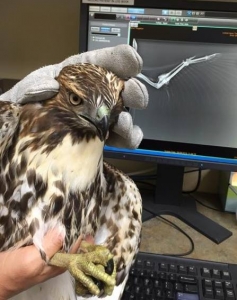It’s that time of the year again. You walk through the forest and stumble about this cute little fox kit that is orphaned, or is it?
You spring cleaned your living room window and now birds are hitting the windows and need your help, do they?
Your dog brings you proudly his morning catch… a little duckling, now what?
The list is endless as in spring and summer the activity level of wild animals and tame humans often clash.
Here at Tanglefoot we get our fair share of wildlife. Always with good intentions but unfortunately often too late or unnecessarily.
So we thought we share a few tips with you to help our wild friends more efficiently.
The most important advice for all wildlife: Use common sense…we know, it sounds obvious, but sometimes seeing an animal in distress can be overwhelming.
Whatever the situation, take a second or even a minute and think first.
BIRDS
This handy diagram published by the SPCA gives a good overview of what to do with baby birds:

Please make sure the bird REALLY needs your help!
Although it might be very tempting to raise a baby bird, the chances of survival are slim if not proper taken care of and really should be done by experienced rescue organizations.
You always can call us, we are well connected with the SPCA and several wildlife rescue organizations. Our staff will evaluate the little bird and initiate treatment if necessary before the bird can be safely transferred to a rescue person.
Until you can get the baby bird in need to the SPCA or us please carefully lift it up and put it in a box lined with an old T-shirt or similar cushioning material. Punch holes in the box for sufficient air flow. Keep it warm, dark and away from pets and loud noises.
What about adult birds, how to judge if they need help? If they are not obviously injured, take a moment to observe the bird.
A bird sitting with its feathers puffed and not moving for a long period or running on the ground when others fly away might need help.
If you encounter an injured adult bird please be very careful and aware of beaks and/or talons.
A well placed beak poke from this heron could cost you your eye.

Use sturdy gloves and cover the bird with a soft towel or blanket to lift it. Transport it in a confined space.
Do not attempt to feed the animals
Again, we will evaluate the situation and take the necessary steps to get the bird into proper rehabilitation.
Juvenile Red Tail Hawk with a broken wing

This young Great Horned Owl came from the Creston Veterinary Hospital to us to spend the night before it was flown to the O.W.L. Orphaned Wildlife Rehabilitation Society

Did you know that Pacific West flies wildlife in need for free to the appropriate rescue organization? Way to go Pacific West!!
Now back to that bird that flew into your freshly washed window…
An estimated 500 million + birds die yearly by smacking into windows. Luckily not all hits are fatal. Often the bird is just dazed and will fly off after a while. What should you do? First just observe it, leave it alone if the surroundings are safe. Should the bird sit on a road or pets are around, carefully put the bird in a box with air holes, keep it dark and away from any stress. Should the bird not return to normal within a few hours, please give us a call.
MAMMALS
Don’t automatically assume that that cute little baby animal you just stumbled upon is orphaned. Take a step back and observe.
At WildCare, a Californian Wildlife rescue organization, they recommend to consider the 5 “C’s” before springing into action:
- Is the baby Crying?
- Is he Coming toward you (or, approaching people)?
- Is he Covered with blood or insects?
- Has he been Caught by a cat or a dog?
- Is he Cold?
If any of the above question a yes, it’s time to get help. Other than that the best action is no action and retreating. And don’t forget to put your dog on a leash, she might listen to you now, but temptation might overwhelm her later.

This black bear cub has been found orphaned and was brought to us for stabilization before getting flown to the Northern Lights Wildlife Society in Smithers for rehab.
To get help please call the RAPP line immediately at 1 877 952 7277 or #7277 on your cell phone. The local branch here is very quick to respond and knows who to get involved and how to best help the animal in need!
We would like to emphasize that, as cute as a little cub, fawn or kid might me, it needs professional help quick. Do not love it “to death”.

Recent Comments